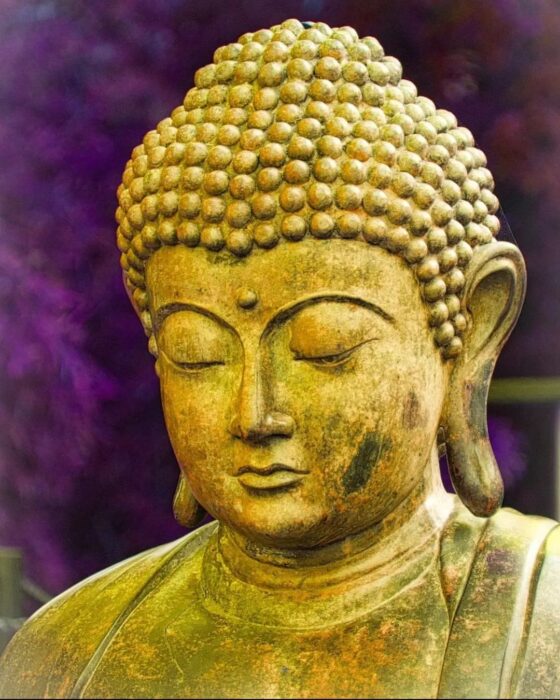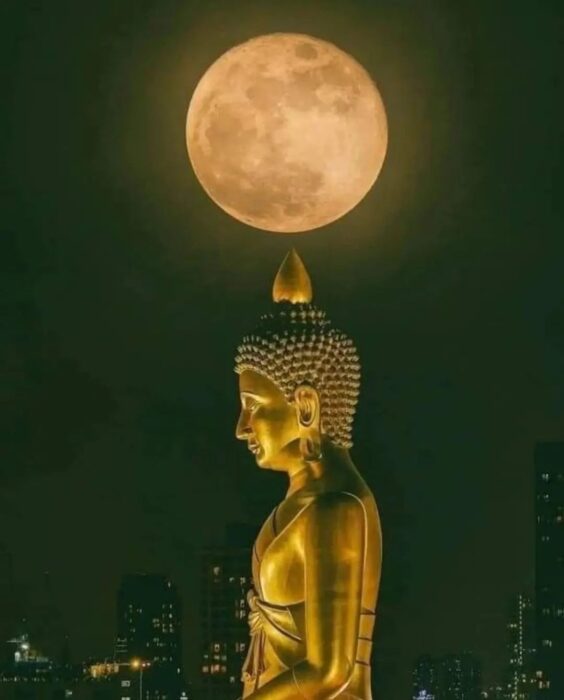3 Buddhist Beliefs That Will Make You Love The Religion – Buddhist’s three most fundamental beliefs surround its founder, way of life, and community. Buddhists refer to these as the Three Jewels, or Triratna. Being a Buddhist entails “taking refuge” in the Buddha (the founder), embracing the dharma (the way of life), and associating with the sangha (the community). Aside from these Three Jewels, the relative value of other teachings varies each school. Nonetheless, there is a great deal of overlap in Buddhist ideals and ways to living. Most Buddhists would place a premium on the Four Noble Truths and the Noble Eightfold Path.
Buddhism’s Three Universal Truths are impermanence, suffering, and the absence of a self. The Buddhist concept of impermanence states that nothing is forever. Everything in life is always changing. By definition, if something has changed from one thing to another, the thing it was earlier has vanished. It is ephemeral.

The universal truth of Suffering is founded on the concept of impermanence. Because nothing is permanent, no desire can ever be really gratified. A person can eat as much as they want, but it will not prevent them from becoming hungry later. Furthermore, even if a person is completely pleased at any one time, the world is far from perfect. Nobody is ever really content. Everyone is doomed to suffer from unfulfilled goals at some time in their lives.
The third universal truth is that there is no such thing as a self. The Buddhist concept of No Self is concerned with the idea that there is no constant and unchanging component of a person that can be recognized as the Self. A person’s awareness and body, on the other hand, are always altering and changing. There is nothing impermanent about a person.
The Four Noble Truths are noble in the sense of “profoundly true” or recognized and understood by the wise, rather than honorable or virtuous. Each truth confronts the reality of human suffering. The first Noble Truth is dukkha, which is commonly translated as “suffering,” and there are several types of suffering in Buddhism. Some are evident, while others are subtle. There is, however, no way to avoid pain while one is alive. As a result, the first Noble Truth is commonly referred to as “life is suffering,” because pain is unavoidable as humans go through childhood, adulthood, old age, and death.
The second Noble Truth deals with the source of pain, or samudaya. Tanha, the basis of all misery, refers to misguided, unhealthy, or excessive desire. When desire becomes uncontrollable, it generally manifests itself in one of three ways: greed, ignorance or delusion, and hatred or destructive tendencies. These are referred to as the three origins of evil, the three flames, or the three poisons. Unfulfilled desires cause anguish.
The third Noble Truth delves into niroda, or the end of suffering. Buddhism says that through letting go of harmful cravings, a person can become free of suffering. This is accomplished through freeing oneself from all types of connection. Those who succeed may reach nirvana, which means that when they die, they will not be reincarnated into a new life of misery.
The fourth Noble Truth addresses the way to suffering abolition and is essentially the teaching of the practices and concepts that a Buddhist adheres to. Understandably, the road to enlightenment differs amongst Buddhist sects. The Middle Way, which follows the Noble Eightfold Path, is the biggest and most well-known.
The Noble Eightfold Path is a set of eight stages that, according to legend, lead to enlightenment. Right knowledge, right purpose, right speech, right action, right livelihood, right effort, right mindfulness, and right concentration are the eight stages on the path.
List Of 3 Buddhist Beliefs That Will Make You Love The Religion :
- Dukkha
- Anitya
- Anatma
The eight phases fall under three categories: wisdom, ethical behavior, and meditation. Though they are frequently read in a particular sequence, the eight stages of the Eightfold Path are not intended to be completed in any particular order. Rather, each step should support and encourage the previous one.

1. Dukkha: Life is difficult and brings about misery.
Many individuals believe Buddhism is gloomy or negative. This is a frequent reaction after discovering that one of the Noble Truths is translated as “Life is suffering.” However, there is more to this remark. It’s not simply saying, “Life is harsh, so deal with it.” So, what does it mean?
We can actually increase our misery by avoiding or suppressing painful emotions. Yes, our lives are unavoidably punctuated by unpleasant sensations such as loss, grief, exhaustion, boredom, and worry, which emerge and reoccur throughout our lives.
Attaching or clinging to certain expectations, material goods, and states of being, on the other hand, is frequently a source of extreme frustration, disappointment, and other types of anguish. Rather of fearing our pain or seeking an ultimate resolution to it (and being irritated by our inability to find one), we might learn to just observe it.
How we might use this notion in our daily lives: Try not to believe that you are broken. Expect death, age, disease, suffering, and loss as inevitable parts of life. In the face of conflict, practice acceptance. Stop believing that life should be smooth and painless, both emotionally and physically. This is a myth popularized by the fashion, cosmetics, and pharmaceutical sectors.
Illness, heartache, loss, disappointment, and irritation are all aspects of life that can be minimized via “non-attachment.” Try to accept flaws and let go of the notion that life should be flawless. Allow yourself to be open to uncertainty.
2. Anitya: Life is always changing.
Anitya, which means “impermanence,” refers to the fact that life as we know it is in perpetual fluctuation. We will never be able to access or reproduce the moment that has just gone. Every day, our cells change, our ideas evolve, and the temperature and air quality change. Everything around us is unique. Always.
When we are feeling particularly uneasy, the thought of impermanence may be strangely soothing. In other words, we know our sorrow will pass since nothing is permanent. However, while we are feeling delight, the concept of impermanence may be quite frightening.
Accepting the concept of impermanence at face value may be quite freeing. In the West, around 100 years after the Buddha stated this principle, Greek philosopher Heraclitus famously stated, “You can never tread in the same river twice.” We only have the current moment.
How we might use it in our daily lives: Celebrate the concept of change. Accept that everything is in perpetual flux. It’s rather astounding when you think about it! Even if the concept of impermanence is frightening, it helps us appreciate all we are experiencing in the present: our relationships, bodies, moods, health, the weather, our favorite shoes, our employment, our youth, and our minds. So let us appreciate the times we do enjoy and remember that the ones we don’t will pass.
3. Anatma: The self is always evolving.
When I ask clients what they hope to gain from therapy, they frequently respond, “I want to find myself.” Our society has encouraged us to assume that there is a tangible, continuous “self” hidden someplace within us. Is it connected to our heart and liver? Or someplace else in our brain? Nobody knows!
Buddhism, on the other hand, holds that there is no permanent, stable “self.” Our cells, memories, beliefs, and personal narratives — everything of the “stuff” that ultimately creates our identities — change with time, according to Anitya (impermanence).
Sure, we all have different personalities (though they can change over time). We have names, jobs, and other designations by which we identify ourselves and feel a feeling of “self.”
However, the concept of a consistent self is just another fiction that our civilization has taught us. We may modify the tale and thereby accept the concept that we, too, can change – at any moment and in any location. “Thanks to impermanence, anything is conceivable,” says Thich Nhat Hanh.
How to use it in everyday life: Instead of focusing on “finding ourselves,” we should focus on building the person we want to be at all times. It is conceivable for us to be and feel differently today than we did yesterday. Being depressed now does not imply that we will be depressed indefinitely. Others can be forgiven. We are capable of forgiving ourselves.
We may rest more securely with the perpetual change present in all of existence if we let go of our connection to the concept of the permanent “self.” We are all new in each new moment.

Be the first to comment